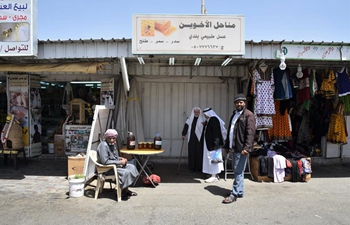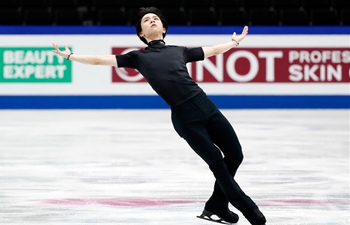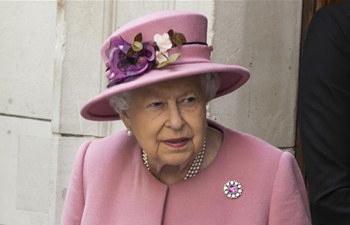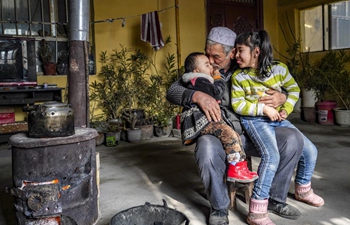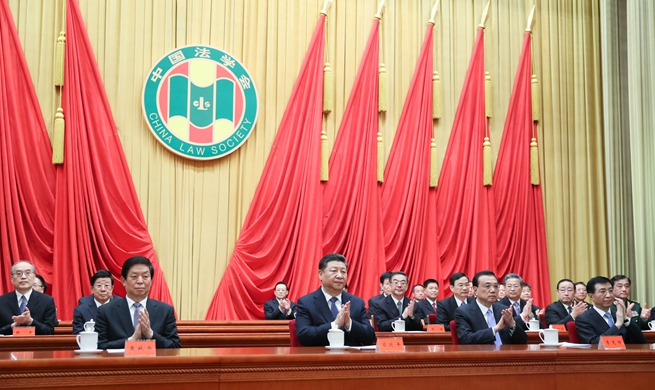by Xinhua writer Tan Jingjing
LOS ANGELES, March 18 (Xinhua) -- Medical experts have warned of the dangers of using malaria treatment for cancer, and called the "malariotherapy" lack of scientific basis and risky for patients.
A Chinese research team recently claimed that they had found that the malaria parasite, or plasmodium, may offer a cure for cancer.
Of the ten cancer patients who took part in the trial of plasmodium for cancer treatment and had been observed by researchers for over a year, five showed "obvious results" including two who might have been "cured," according to the team.
However, in interviews with Xinhua, several U.S. experts expressed concern over the maneuver.
WHAT IS "MALARIOTHERAPY"
The "malariotherapy" was first proposed in the 1980s by Dr. Henry J. Heimlich, the inventor of the world-known anti-choking Heimlich maneuver.
Heimlich drew the idea of "malariotherapy" from the work of an Austrian scientist, who received the 1927 Nobel Prize for using it to treat a type of dementia associated with late-stage syphilis.
Heimlich, who has courted controversy in several fields of medicine, argued that inducing high malarial fevers by injecting patients with malaria could stimulate the immune system to fight AIDS, Lyme disease and cancer.
In an exclusive interview with Xinhua, Peter Heimlich, son of Henry J. Heimlich, said his father claimed he could cure cancer by infecting patients with malaria in the early 1980s.
In the late 1980s, the Heimlich Institute conducted clandestine experiments in Mexico which were eventually shut down by the Mexican government.
The Heimlich Institute also oversaw experiments on U.S. Lyme Disease patients in Mexico City and Panama City, before the project was shut down in 1992 after an investigation by the U.S. Centers for Disease Control and Prevention (CDC) because returning patients infected with malaria were bringing the disease into the United States, according to Peter Heimlich.
CONTROVERSIAL TECHNIQUE
Henry Heimlich's "malariotherapy" raised great controversy. Many U.S. medical experts said the theory does not make any scientific sense.
In a phone interview with Xinhua, Robert S. Baratz, assistant clinical professor of medicine at Boston University School of Medicine, said that what the Chinese research team has been working on is no different from Henry Heimlich's "malariotherapy" experiments.
"It (the therapy) has no logic nor scientific basis," said Baratz, who was former executive director of the U.S. National Council Against Health Fraud, adding Henry Heimlich had no background or training in immunology.
"Dr. Heimlich was no expert in malaria, HIV, Lyme, nor infectious diseases," he said.
"In my own opinion, the 'malariatherapy' endorsed by Dr. Heimlich has no scientific basis and should not be used on human subjects," said George J. Annas, a professor and director of the Center for Health Law, Ethics and Human Rights at the Boston University School of Public Health, School of Medicine, and School of Law.
DANGEROUS FOR HUMAN TRIALS
The "malariotherapy" was opposed by the CDC, and several medical experts were harshly criticized for experimenting on humans.
"It is very problematic to use terminally ill cancer patients for a 'safety' trial, as it is likely that most, if not all, patients will sign up because they think that the malaria trial might benefit them," Annas told Xinhua.
"Whatever evidence there is of therapeutic effectiveness (and I assume there is none), must be shared, as well as the lack of any scientific evidence of its effectiveness," he said.
Baratz said injecting malaria parasite would destroy patients' immune system, which might have already been weakened by HIV, cancer or other diseases.
They warned that cancer patients not to become overexcited about the claims for "positive" cancer treatment results.
The expectation and eagerness for the treatment of cancer patients is understandable, but should not be taken advantage of, said Baratz.




